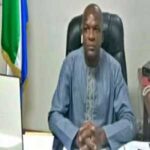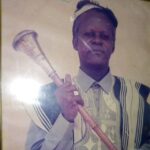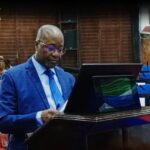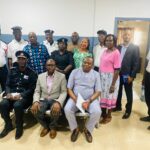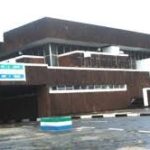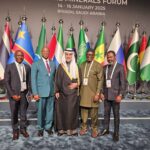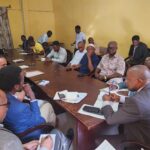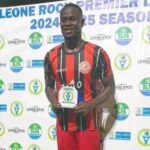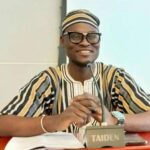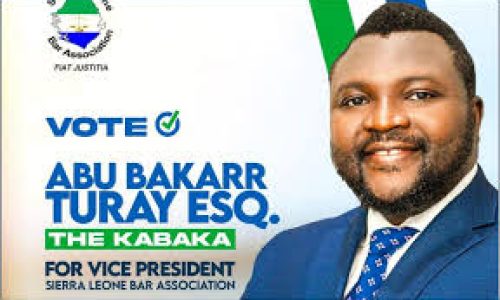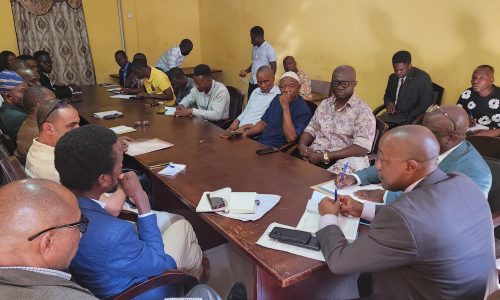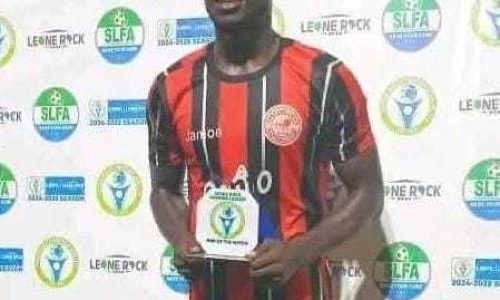By Feima Sesay EcoBank, the Pan African Bank in Sierra Leone, has in Collaboration with the African Global Logistics partnered with the Association of Clearing and Forwarding Agencies Sierra Leone on new Migration payment method. The events was held at the EcoBank Cline Town branch office on Thursday 27th June 2024. Their aimed was to create the platform for Association and Clearing and Forwarding Agencies in order to make money transaction easy, efficiently and effectively. Speaking at the launching ceremony, the Managing Director ECOBank Sierra Leone Sebastian Ashong Katai said the partnership marked a significant steps in the banking sector in the country, adding that the reason for the partnership was for the bank give credence to the work of the ACFA-SL towards the economy of the country which is an import driven economy. According to the MD, EcoBank has had a long standing relationship with the Association and said they had a history togetger, adding that EcoBank was the first bank that started providing collection services in favour of National Revenue Authority (NRA) and the shipping agencies within the Cline Town environment. He said such was a principal activity because they knew that as a country, the government needed revenue inorder to be able to provide infrastructure for its citizens. “In our Bank, not only in Sierra Leone but whereever EcoBank operates, we take steps towards puting systems in place that allow its revenue to be collected in an efficient manner which is the key mandate of ours and ever since this particular branch was established, both the association and EcoBank have had an excellent relationship over the years,” MD stated. He underscored that there had been changes in the way payment were made in respect of NRA and its agencies that are collecting the fund, adding they believed as a bank that automation was one of their strength at EcoBank and would therefore use that technology to be able to make payment for services more efficient and effective. That process, he said, would make life easy for the association as payment, he said, should not be the core part of their activities as there have been a number of challenges that the clearing agencies expirence. This, he said, was part of the reasons why they are partnering to provide some clarifications on how the payment would work, noting technology digitalization was the way forward and that was why he said EcoBank has combined with the African Global Logistics to provide the platform for the association to be able to operate. “We understand that there have been numerous challenges along the way so we are going to work closely with the ACFA-SL as the three of us are on the same page in making sure that there is no confusion around the concept, but beyond that I think the collaboration that we have can also be of good help to the process,” he said. The Managing Director furthered that what EcoBank would be doing was to support the community in organizing their business proper together with financial and risk management as they have the capacity to do so, adding that they would also support not just the association but the individual, noting that some of them do not only have their companies but their individual activities too. He also disclosed that the partnership would also provide special packages for women that would enable them have access to business, adding that they had a programme that centered around supporting women to access market and organize their businesses effectively. In conclusion said even though they wanted the companies business as a bank, but said they believed that privatizing their business would add some value in them. Mohamed A. Salia, Chairman of the Association of Clearing and Forwarding Agencies Sierra Leone in his statement during the ceremony said they were all aware of the hassle the association had been through with respect to payment. The partnership with EcoBank, he said, has now provided the space for easy access to transact their business through an automated platform payment that served as an intermediary among government, stakeholders and NRA in order to raise the much needed Revenue. The outcome of the events, he said, would shorten the time it takes them to transact business between EcoBank and Freetown Terminal, noting that the impact is to reduce the unnecessary approved charges they incur during transaction. Salia however pleaded with the bank to extent the product to others so as to improve on their business in order to change their mindset on how to run their business. This he said would help improve their businesses and make the membership investment ready. Donald Coker, Finance Manager African Global Logistics, in his statement said they believed in digitalization as their core and strength as it makes transaction much easier thereby maintaining the smiles on their customers face. According to him, the AGL would always ensure that things are smooth. He also informed the audience that Freetown Terminal is a cashless institution as they do not receive cash firing transaction. It is in this light, he said, they engaged stakeholders and bankers to creat such a platform, adding that the partnership with ACFA-SL is not the end nothing that there are more opportunities where they would be at their offices and go to the internet and do their Banking without moving. He added that it could bring more transparency and take away fraudulent activities as it would encourage customers get the required satisfaction. He re-echoed that EcoBank is here to stay and work with them to sustain the smiles on the customers face.Coker however encouraged the association to be patients as he said there must be challenges along the way, but, move on from that. There was a presentation on how the African Global Logistics New Migration Payment and EcoBank products and services are done by Mr Pearce from EcoBank Sierra Leone He said all that which the customers need to do is to work into any EcoBank

